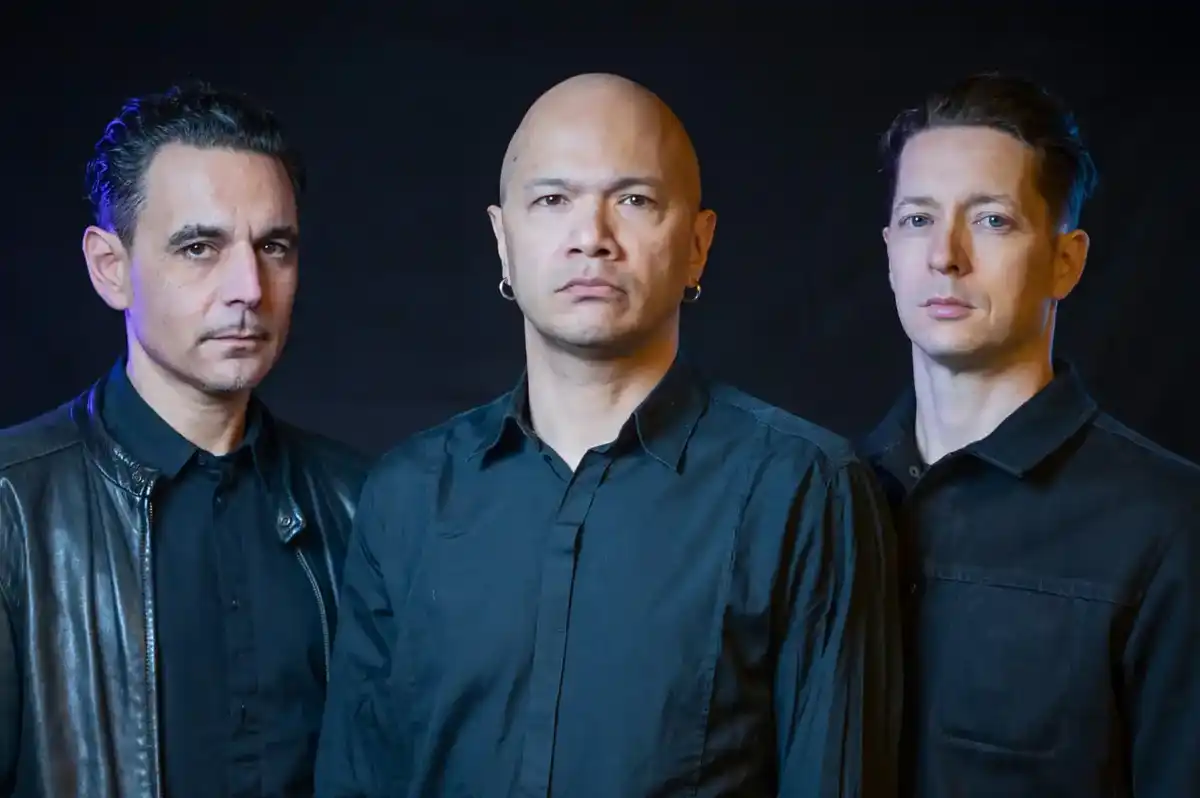The COVID-19 Chronicles: Five Questions With …Sultans Of String's Chris McKhool
The Coronavirus pandemic forced the acclaimed world music combo to cancel a major US tour. Here its leader reflects on the damaging economic fallout, while remaining positive about the ways SoS can connect with its fans and the creative opportunities offered during “this time that the earth stood still.”

By Jason Schneider
Since first appearing on the scene in 2007, Toronto’s Sultans Of String has never taken the easy road in terms of crafting their internationally acclaimed hybrid of folk, jazz and world music. Their latest album, Refuge, is their most ambitious yet, a collection of 13 songs that speak to the challenges facing the world’s displaced peoples—their stories, their songs, their persistence and their humanity.
It features the group collaborating with over 30 artists, from the renowned banjo player Bela Fleck to Ojibway poet Duke Redbird and a string section from Istanbul, Turkey. However, all plans surrounding the release of Refuge on March 20 were put on hold because of the COVID-19 crisis, putting the band’s expected earnings from touring in jeopardy and dampening what was supposed to be a celebration of the year of hard work put into making the album.
It is sadly a common story with many musicians who have had spring album releases scheduled. We spoke with Sultans Of String co-founder Chris McKhool about how he and the band are coping with our current reality, and how it could shape the future of the music industry. Refuge is available to purchase now physically and on all digital and streaming platforms. Find out more at sultansofstring.com.
You released your new album Refuge on the day self-isolation measures were put in place. Were you preparing at all for this eventuality, and what immediate steps did you take in terms of the album launch?
The whole situation evolved so quickly, I don’t think anyone expected our societal structure to change so rapidly. Around release day, it seemed like every three or four hours there was a dramatic shift into a new normal, and ideas that seemed reasonable a day or two earlier seemed ludicrous after another news cycle. The weekend before our release we were still sitting on the fence about embarking on our 15-date US tour that was two years in the making. By the time we realized it was not safe to travel over the border, the tour dates started falling like dominoes. It was too late to pull back on the digital and physical release, and we had already shipped hundreds of promo CDs to radio stations across North America. So for this first week of the release we have been full steam ahead, doing everything we would have normally done, but with no live shows.
What have you been doing since then to engage with your audience?
The news is so saturated with COVID-19 that it is pretty rough going to break through to mainstream media with a world music release. Music fans cannot attend a live show, or walk into a store to buy a CD. But all eyes are on the Internet right now, so we have put all our energy into creating really cool captivating videos with our videographer Jake Roels. We have tons of footage of the recording process of Refuge from Jukasa Studio, an Indigenous-owned, world-class studio on the Six Nations reserve south of Hamilton. It is a cool place too, that gives back to the local community through music education programs, creating a new generation of engineers.
We also have super fun videos of recording with our guest musicians, everyone from Béla Fleck to Yasmin Levy to Gündem Yayli Grubu, and the Roma string group in Istanbul we collaborated with. We have experimented with a couple of watch parties on Facebook to share these videos as they come online, and we are currently working with our co-producer John ‘Beetle’ Bailey to figure out the best way for us to all be able to play live together online so we don’t have to take any risks to be able to keep making the music we love to make and sharing with our fans. In the meantime, videos get uploaded to www.youtube.com/sultansofstring
How has the inability to tour affected the band from a financial standpoint?
We had already spent thousands and thousands on promotion on the Refuge project. We travelled to New York City in January with many guests to showcase at the APAP [Association of Performing Arts Professionals] conference, and spent a lot upfront on promo for our cancelled tour. Not being able to gig was really a kick in the gut as that was the tour that was going to help pull us out of debt. So the day our U.S. tour was cancelled felt like the single toughest day of my professional life. All of our Canadian concerts have been rescheduled to the fall, including our giant Toronto CD release show on October 16 with twenty guests from the Refuge project. So if life starts getting back to some kind of normal at that time, hopefully we can dig ourselves out a bit. Thankfully, and most importantly, we all have our health and no one in our immediate band is sick, and I like to zoom out a bit to keep our financial issues all in perspective.
Do you think the response from governments has been sufficient, and if not, what more would you like to see?
While the short term pain of self-isolating is unbelievably tough for musicians, as well as everyone in the service industries, the more we clamp down now in Canada, the more we can bend the curve and fewer lives will be at risk in the long run. We are very lucky to live in a country with a proper social safety net and free health care. The Canada Emergency Response Benefit [CERB] fund will literally save many of our musician friends from being kicked out to the curb, and while it has not gone live yet, on the surface it looks like a relatively straightforward process to receive the support. We have a lot of musician pals in the US, and they don’t have anywhere near that level of support. Beyond the role of governments, now more than ever we have to learn how to come together as one global community and take care of one another.
What do you believe the overall impact of the pandemic will have on the music business once things start returning to normal?
Like most bands these days, we make most of our living from live gigs. My biggest worry is that presenters, particularly in the performing arts market, will be even more risk-averse than they have been in the past couple of years, and the trend towards safe choices and tribute bands will continue. Also in the short term, assuming activities are starting to return in the fall, everyone and their uncle will be on tour at the same time, so there will be a lot of competition and a lot of choice for those who want to see live music. It will be an exciting time for those who love music! I suppose a lot of things will be done differently, and hopefully ultimately better for the planet, as more meetings will be taken online. Even my octogenarian parents have started to use Zoom.
As one of our guests in the Refuge project, Somali-American refugee poet Ifrah Mansour says, “An artist’s job is to draw that hope, especially in a time of deep hopelessness.” People will experience this time differently, with different degrees of loss, but I also think we will discover a lot of incredible art that was made during this time that the earth stood still.

















